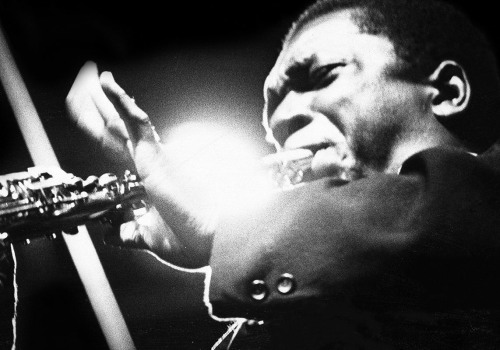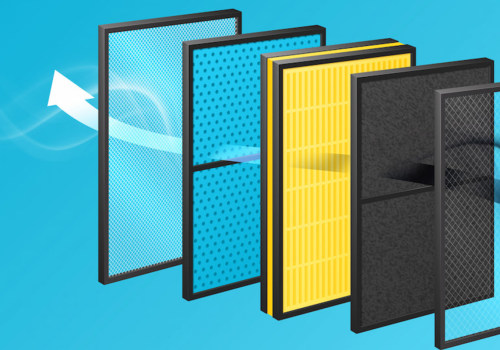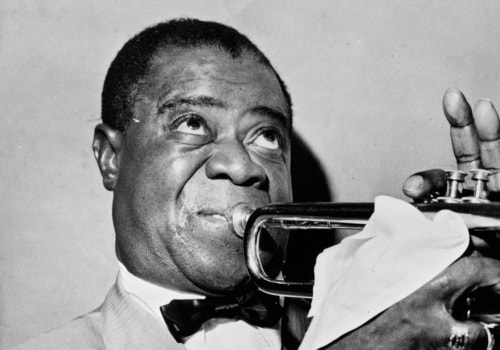Dirty AC Filter Symptoms
In the realm of climate control systems, an air conditioning (AC) filter serves as a sentinel against impurities that could infiltrate the indoor environment. However, neglecting regular maintenance of this crucial component can lead to a cascade of adverse consequences. The accumulation of dirt and debris on the AC filter can progressively impair its functionality, resulting in reduced cooling performance and increased energy consumption. Furthermore, compromised air quality, potential health issues, frequent repairs, ice formation on the evaporator coil, and unpleasant odors emanating from the unit are indicative symptoms associated with a dirty AC filter.
Reduced Cooling Performance
Reduced cooling performance can be attributed to a dirty air conditioning filter. An inefficient cooling system is often the result of reduced airflow caused by a clogged or dirty filter. Air filters in air conditioning units play a crucial role in maintaining indoor air quality and maximizing system efficiency. However, over time, these filters can accumulate dust, dirt, and other pollutants, leading to reduced airflow. When the filter becomes excessively dirty, it hampers the movement of air through the system and restricts proper heat transfer. As a consequence, the cooling capacity of the air conditioner diminishes significantly.
A dirty air conditioning filter not only impedes efficient cooling but also increases energy consumption. With reduced airflow, the unit has to work harder to cool down the space adequately. This increased strain on the system leads to higher energy consumption as well as higher electricity costs for homeowners or businesses. Moreover, an inefficient cooling system may struggle to maintain desired temperatures during hot weather conditions or peak usage hours.
To prevent such issues and ensure optimal cooling performance with maximum energy efficiency, regular maintenance is essential. Cleaning dirty AC filter symptoms helps improve airflow and enhances overall system functionality while reducing energy consumption and providing consistent temperature control throughout the space.
Increased Energy Consumption
Elevated energy consumption can be observed as a consequence of the aforementioned issue. When an air conditioning (AC) filter becomes dirty, it can lead to reduced energy efficiency in cooling systems. Dirty AC filters restrict airflow, causing the system to work harder to maintain the desired temperature. This increased workload results in higher energy consumption.
To improve energy efficiency and reduce energy costs, regular maintenance of AC filters is essential. Cleaning or replacing dirty filters is recommended every one to three months, depending on usage and environmental conditions. Regularly inspecting and cleaning the filters allows for proper airflow and prevents debris from accumulating within the system.
In addition to filter maintenance, there are other tips that can further enhance energy efficiency in cooling systems. Proper insulation helps prevent cool air from escaping and hot air from entering, reducing the strain on the AC unit. Utilizing programmable thermostats allows for targeted cooling during occupied periods while adjusting temperatures during unoccupied times.
Poor Indoor Air Quality
Poor indoor air quality can pose significant health risks and act as triggers for allergies and asthma. The presence of pollutants such as dust, mold, pet dander, and volatile organic compounds (VOCs) in the indoor environment can lead to respiratory problems, eye irritation, and even long-term health issues. Individuals with pre-existing allergies or asthma are particularly susceptible to experiencing flare-ups and worsening symptoms in environments with poor air quality.
Health Risks Associated
The presence of a dirty AC filter in indoor environments has been linked to potential health risks. Poor air quality due to a dirty AC filter can lead to various health effects. These include respiratory symptoms such as coughing, wheezing, and shortness of breath, especially in individuals with pre-existing conditions like asthma or allergies. Additionally, exposure to pollutants trapped in the filter can cause eye irritation, headaches, fatigue, and exacerbation of existing respiratory diseases. To prevent these health risks, it is important to regularly clean or replace the AC filter according to manufacturer guidelines. Maintaining proper ventilation and humidity levels can also help reduce the accumulation of contaminants in indoor air. Implementing preventive measures will contribute to better indoor air quality and promote healthier living environments for occupants.
Allergy and Asthma Triggers
Exposure to contaminants trapped in indoor air can aggravate respiratory conditions like asthma and allergies, leading to increased symptoms in affected individuals. Allergenic pollutants, such as dust mites, pet dander, pollen, and mold spores are commonly found indoors and can trigger allergic reactions and worsen asthma symptoms. These allergens have the potential to cause inflammation of the airways, resulting in coughing, wheezing, shortness of breath, and chest tightness in susceptible individuals. Additionally, exposure to these allergenic pollutants may also lead to nasal congestion, sneezing, itchy eyes and skin. Individuals with pre-existing respiratory conditions are particularly vulnerable to these triggers as their immune systems may overreact to even low levels of these allergens. Therefore, individuals with respiratory health concerns must minimize exposure by ensuring proper ventilation and regularly cleaning indoor environments to reduce the presence of allergenic pollutants.
Allergies and Respiratory Issues
Air quality can have a significant impact on respiratory health, with pollutants and allergens in the air causing various adverse effects. Common symptoms experienced include allergies, such as sneezing and itchy eyes, as well as respiratory issues like coughing, wheezing, and shortness of breath.
Air Quality Impact
Air quality can be significantly affected by a dirty air conditioning filter. The purpose of an air conditioning filter is to capture and remove airborne particles such as dust, pollen, and pet dander from the air circulating in a building. A dirty filter restricts airflow, reducing the efficiency of the ventilation system and allowing these particles to accumulate in the indoor environment. This can lead to increased levels of air pollution indoors, which may have adverse effects on human health. Fine particulate matter, for example, has been linked to respiratory problems and cardiovascular diseases. Additionally, poor indoor air quality can exacerbate existing respiratory conditions like asthma or allergies. Regular maintenance of air conditioning filters is crucial to ensure proper filtration and maintain good indoor air quality.
Common Symptoms Experienced
Common symptoms frequently reported by individuals residing in buildings with poor indoor air quality include coughing, sneezing, and difficulty breathing. These symptoms are often caused by a dirty air filter that fails to effectively remove airborne contaminants. Regular air filter maintenance is essential for maintaining good indoor air quality and preventing these symptoms from occurring. Troubleshooting tips can help individuals identify and address issues with their air filters. Firstly, it is important to check the filter regularly and replace it when necessary. Additionally, proper installation of the filter is crucial to ensure optimal functioning. If individuals continue to experience symptoms despite regular maintenance, other factors such as mold or chemical pollutants may be contributing to poor indoor air quality and professional assistance should be sought.
Frequent Breakdowns and Repairs
Frequent breakdowns and repairs can be observed as a consequence of neglecting to regularly clean or replace the dirty AC filter. Neglecting frequent maintenance of the AC filter leads to an accumulation of dirt, dust, and debris, which can severely impact the efficiency and functionality of the air conditioning system. As the air passes through the dirty filter, it becomes clogged, restricting proper airflow and causing strain on the system. This increased strain can lead to breakdowns and malfunctions in various components such as fans, motors, coils, or compressors.
When an AC system is not able to function optimally due to a dirty filter, it may experience issues such as reduced cooling capacity, uneven cooling distribution within rooms, increased energy consumption resulting in higher utility bills, or even complete system failure. These problems often require costly repairs that could have been prevented with regular maintenance.
Additionally, neglecting to clean or replace a dirty AC filter increases the risk of other parts becoming contaminated by airborne particles. This contamination can lead to further damage and more extensive repairs being necessary. Therefore, adhering to a regular maintenance schedule for cleaning or replacing the AC filter is essential for optimal performance and avoiding high repair costs associated with malfunctioning air conditioning systems caused by neglected filtration maintenance.
Ice Formation on the Evaporator Coil
Ice formation on the evaporator coil can occur due to factors such as restricted airflow, low refrigerant levels, or a malfunctioning thermostat. When there is restricted airflow, it can lead to inadequate heat transfer and cause the evaporator coil temperature to drop below freezing. As a result, moisture in the air condenses and freezes on the coil surface, leading to ice buildup.
Low refrigerant levels can also contribute to ice formation on the evaporator coil. Insufficient refrigerant reduces the pressure and temperature within the coil, causing it to become colder than normal. This cold temperature causes moisture in the air to freeze onto the coil.
A malfunctioning thermostat may cause continuous operation of the cooling system even when it is not necessary. This can lead to excessive cooling and subsequent ice formation on the evaporator coil.
To prevent ice buildup on the evaporator coil, regular maintenance is essential. Proper evaporator maintenance includes cleaning or replacing dirty air filters regularly to ensure unrestricted airflow. Additionally, checking and maintaining adequate refrigerant levels will help prevent freezing of moisture on the coil surface.
Strange Odors From the AC Unit
Unusual odors emanating from the AC unit can be attributed to factors such as microbial growth, electrical issues, or a clogged condensate drain. These odors are often indicative of poor maintenance and can lead to discomfort for occupants. To prevent such issues, regular AC maintenance is essential.
One of the most important AC maintenance tips is to regularly clean or replace the air filters. Dirty filters not only reduce the efficiency of the system but also contribute to unpleasant odors. Cleaning techniques for filters typically involve vacuuming or washing them with mild soap and water. It is recommended to check the manufacturer's instructions for specific cleaning guidelines.
In addition to filter cleaning, it is crucial to inspect and clean other components of the AC unit. The evaporator coil, condenser coils, and condensate drain should be checked regularly for any buildup of dirt or debris that could cause foul smells. Cleaning techniques for these components may vary depending on the type of AC unit and its specific requirements.
Frequently Asked Questions
How Often Should I Clean or Change My AC Filter?
The frequency of cleaning or changing an AC filter depends on various factors, including the type of filter, indoor air quality, and usage. Regular maintenance is crucial to improve the efficiency of the AC unit.
Can a Dirty AC Filter Cause My Energy Bills to Increase?
The impact of a dirty AC filter on energy bills is dependent on various factors, including the severity of dirt accumulation and system efficiency. However, a dirty AC filter can potentially reduce airflow and increase energy consumption.
What Are Some Common Respiratory Issues That Can Be Caused by a Dirty AC Filter?
Common respiratory issues caused by a dirty AC filter include reduced air quality and increased risk of allergic reactions. The accumulation of dust, pollen, and other allergens in the filter can exacerbate respiratory conditions such as asthma and allergies.
How Can I Prevent Ice Formation on the Evaporator Coil of My AC Unit?
Preventing ice formation on the evaporator coil of an AC unit can be achieved through regular maintenance. Some tips include keeping the filter clean, ensuring proper airflow, checking for refrigerant leaks, and scheduling professional inspections.
Are There Any Specific Odors That Indicate a Dirty AC Filter?
Specific odors can indicate a dirty AC filter. Preventing odors involves regular cleaning of the filter using appropriate techniques. Identifying and addressing these odors promptly can contribute to improved air quality in indoor environments.



